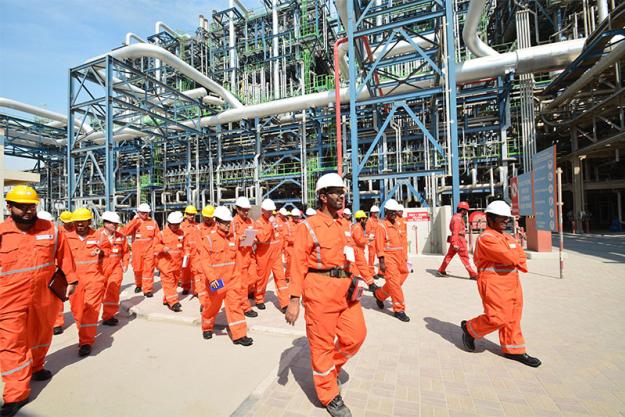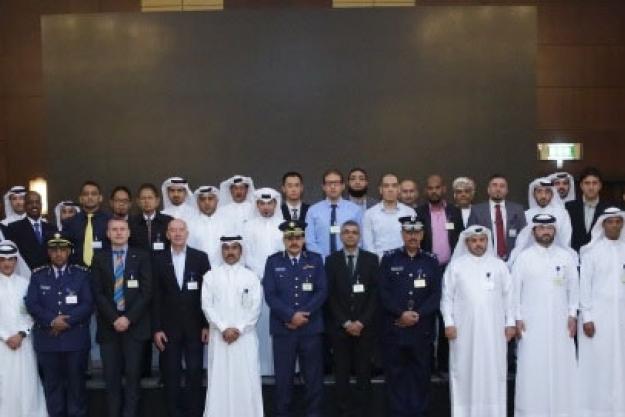
Participants during a Regional Course on Training Inspection Escorts
The OPCW, in cooperation with the Doha Regional Centre for CBRN Training conducted a three-day Regional Course for National Authorities of States Parties to the Chemical Weapons Convention in Asia, from 20 to 22 October 2015. The training course comprised a two-day programme of lectures and presentations, followed by a one–day practical mock industry inspection exercise.
The course was inaugurated by Major-General Staff (Pilot) Nasser Mohammad Al-Ali, Chairman of the Qatar National Committee for the Prohibition of Weapons. In his opening remarks, Brigadier (Air) Hassan Saleh Al Nesf, Deputy Chairman of the Committee, emphasised the need for an effective and credible verification regime to avert the dangers posed by the chemical weapons, and highlighted the key role played by inspection escorts in facilitating industry inspections. He also underlined the need to enhance regional cooperation for effective implementation of the Convention.

Authorities of Asian States Parties on Training Inspection Escorts
The participants gained knowledge about various aspects of OPCW industry inspections, including pre-inspection briefing, physical inspection, review of the chemical production and consumption records as well as preparation of inspection report. The mock industry inspection exercise was conducted at a chemical plant of the Qatar Petrochemical Company (QAPCO) in Doha. The exercise was designed to provide participants a first-hand experience of conducting and receiving an inspection as well as to develop a clear understanding of the rights and obligations of a State Party during an inspection. The participants found the exercise useful and expressed their appreciation for such capacity building efforts undertaken by the Government of Qatar and OPCW.
The course, with simultaneous interpretation in English and Arabic was attended by 53 participants representing 17 States Parties, including Bangladesh, China, India, Indonesia, Iran, Iraq, Lebanon, Malaysia, Myanmar, Oman, Pakistan, Philippines, Qatar, Saudi Arabia, United Arab Emirates, Uzbekistan and Vietnam.
